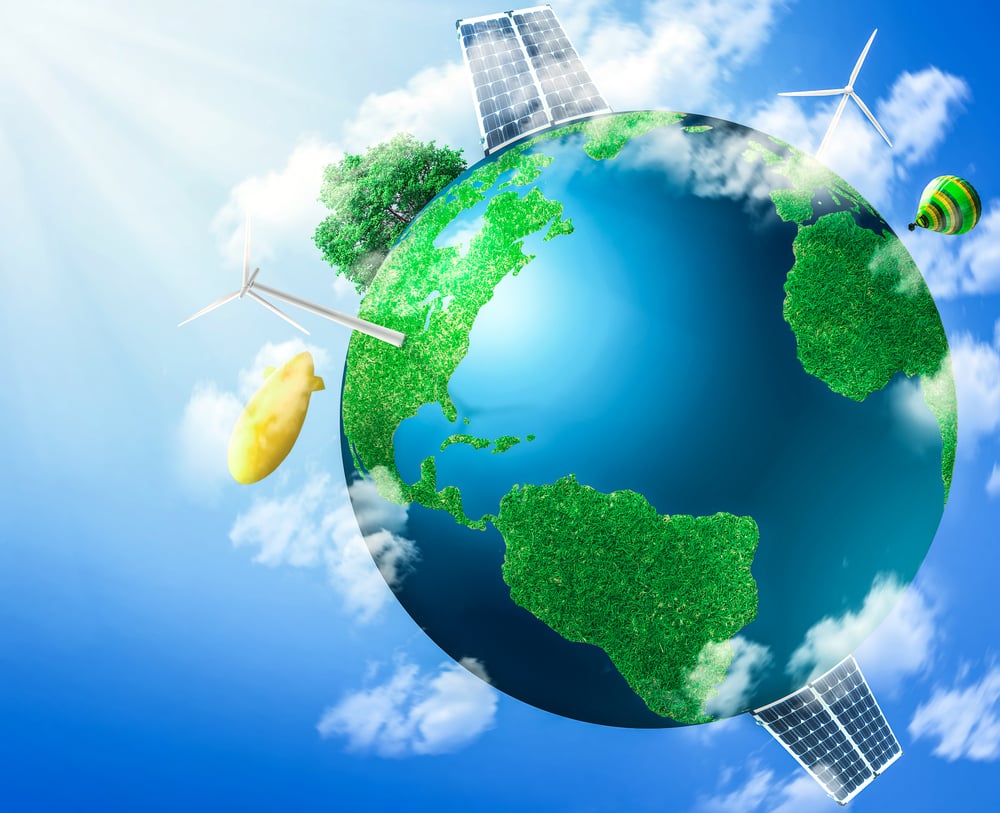Posted by Data Stems ● Sep 19, 2022 11:45:00 AM
Future of Sustainable Consumption
Most pollution in the 21st century results from the production of goods and services, evident in the 400 million tonnes of plastic waste accumulated yearly. However, sustainable consumption fixes this issue as the term refers to using products and services that satisfy human needs without adversely affecting the environment.

This mindset towards satisfying human needs promotes energy and resource efficiency, access to decent jobs, and improved quality of life. It's debatably the recipe for building a future that benefits humans and the planet. However, it's worth wondering whether a future driven by Sustainable consumption is possible. Fortunately, this post aims to explore this concept and reveal trends, potential inhibitors, necessary implementations, and more.
Corporations implementing Sustainable consumption
Large corporations greatly affect the implementation of sustainable consumption since their offerings determine whether the environment will experience adverse effects after human need is met.
Fortunately, major corporations have contributed to the future of Sustainable consumption by making interesting corporate changes. These include:
Google ensures its data centers use 50% less energy than other establishments, and 91% of their total waste is diverted from landfills. The establishment also advocated for the environment, which it demonstrates via protecting critical marine habitats by providing sustainable fisheries.
- Apple
Apple Inc. works towards reducing its carbon emissions and partners with companies that adopt a similar mindset. Furthermore, the tech giant crafts products with aluminum as its main component instead of other materials since it produces fewer carbon emissions.
- Ikea
Ikea aims to provide high-quality products while reducing energy and water usage significantly. Also, the brand manufactured items with sustainable materials, with 91% either recycled or incinerated, for more energy.
- Intel
Intel recycles 75% of its total waste without affecting its ability to provide state-of-the-art processing power to customers. Also, the brand works toward ensuring no toxic waste leaves the factory in landfills.
The future of Sustainable consumption depends on major corporations implementing this concept; fortunately, many have already set policies that keep the planet safe without affecting product quality.
Necessary implementations for the future of Sustainable consumption
The need for eco-friendly policies and products is becoming a global desire, with a report from SmartestEnergy revealing that 81% of people prefer buying from sustainable sellers. Fundamentally, these individuals desire fewer carbon emissions, more power efficiency, and reduced waste, which translates into more sustainable consumption on the consumer's end.
Some necessary implementations need attention to propel humanity's transition into sustainable consumption further. These include:
Avoid sustainable goods becoming luxury items
Currently, sustainable products are more expensive than their conventional counterparts due to the higher cost of production and raw materials. This factor makes possessing such eco-friendly products a luxury as they're unlikely to pay higher prices with the availability of cheaper alternatives. Therefore, employing procedures to reduce how much it costs to acquire eco-friendly products for sustainable consumption should be a priority for corporations. Without this implementation, the future of Sustainable consumption may be nothing noteworthy.
Dispel public misconceptions
According to Havard's business review, buyers often negatively associate sustainable products with less visually appealing, lower quality, and unnecessarily expensive. This perception is evident in people's opinion on electric cars versus conventional vehicles, viewing the former as inferior to the latter. Therefore, correcting and debunking such misconceptions is crucial to achieving a future governed by sustainable consumption, as hesitance restricts it.
Increase accessibility
Several factors contribute to people not buying sustainable goods, and one of three elements includes unavailability. Essentially, people couldn't find these items in the shops they commonly visit. Therefore, increasing the availability of such items in popular outlets is one way to hasten the transition into a future of Sustainable consumption. However, further investigation into why businesses don't offer these products is crucial as other factors commonly predicate unavailability.
Favorable government policies
According to Ivey Business Journal, the government can encourage businesses to employ more sustainable practices via tools like taxes, markets, and regulations. However, these are applied in a "piecemeal fashion," used ineffectively and poorly measured. Rectifying these issues and implementing appropriate policies can support establishments with an eco-friendly mindset, allowing them to innovate new products and practices to herald the future of Sustainable consumption.
Conclusion
Sustainable consumption is necessary to build a cleaner and more efficient reality. However, achieving this goal requires the elimination of specific limitations such as correcting misconceptions, reducing the cost of acquisition, setting new government and corporate policies, and more.
Topics: Sustainability

